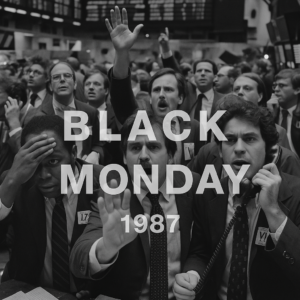Violent shifts in the Fed’s expectations change the route of the markets.
The markets no longer expect a rate hike next June, and on top of that, bets on a 25 basis point rate hike next May fell from 91% to 77%, with a 23% possibility to stop raising rates (compared to 10% yesterday).
Markets also began to expect the Federal Reserve to start cutting interest rates next September, despite the denials of all Fed members.
All of this comes after risk appetite changed with the collapse of First Republic Bank by more than 50% yesterday after disappointing earnings reports showed the bank’s loss of $100 billion in deposits; Fears are now increasing that a new US bank will fail.
This pushed the Dow Jones index to drop by 325 points to 33,548. On the other hand, the Nasdaq index fell to 12,800 level.
With the shift in risk appetite, the desire for hedging increased as gold prices returned to record new highs close to $2000 an ounce. On the other hand, the US dollar index declined 0.50% after the consumer confidence report, which indicated a substantial decline in the confidence of American consumers.
On the other hand, the oil markets show fears of the US economy falling into a recession, as Brent oil fell by 2.39% to reach $80.56 a barrel, while West Texas crude oil declined by 2.23% to $77.02 a barrel.
The Federal Reserve announced it would hold emergency meetings after a new crisis strikes the First Republic Bank.
The Financial Times reported that the US Federal Reserve held emergency meetings with First Republic Bank, fearing the failure of a new US bank.
The newspaper said that the liquidation taking place in the shares of the American bank rings alarm bells in Washington. The newspaper added that meetings had been held between officials from the White House, the Federal Reserve, and the Treasury Department recently, and the Biden administration is trying to control the increasingly severe crisis. The US administration believes that time is running out and the bank needs to be closer to securing customer and investor deposits.
Bloomberg indicates that the bank is considering selling assets estimated at between $50 billion and $100 billion in securities and mortgages as part of a larger plan to improve the bank’s financial position.
The sale helps reduce turmoil in the assets, and buyers include central US banks, and they receive warrants or preference shares as an incentive to buy assets above market value.
The sources added to Bloomberg that the US government may have to intervene to negotiate with central banks to restore stability to the First Republic.
Wall Street earnings reports:
Google and Microsoft announced their first-quarter earnings reports. Google announced a $70 billion share buyback program. The stock rose by more than 3% in after-hours trading.
Google’s earnings report for the first quarter revealed that revenues exceeded expectations, as revenues recorded $69.79 billion, compared to an expected $68.9 billion. Earnings per share were $1.17, compared to an expected $1.08.
As for Microsoft, they recorded revenues of $ 52.86 billion, compared to an expected $ 51.02 billion. Earnings per share were $2.45, compared to an expected $2.23. The company’s revenue increased 7% year-over-year for the quarter ended March 31.
Microsoft’s revenue from Azure cloud and other services grew 27%, compared to 31% in the previous quarter. Wall Street analysts had expected a growth of 27.2%.
Sales of Windows devices fell by 28%, while it was estimated to decline by 30%. One of the company’s most vital points is its announcement of the acquisition of ChatGPT artificial intelligence service during the first quarter of the year and its integration with its multiple benefits, such as the search engine and Office 365 services.
Disclaimer: This article is not investment advice or an investment recommendation and should not be considered as such. The information above is not an invitation to trade and it does not guarantee or predict future performance. The investor is solely responsible for the risk of their decisions. The analysis and commentary presented do not include any consideration of your personal investment objectives, financial circumstances, or needs.





